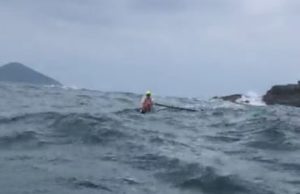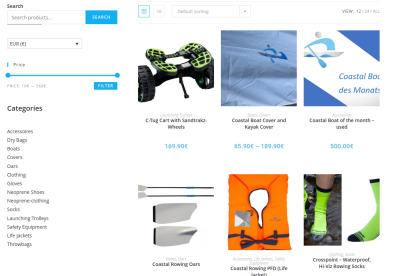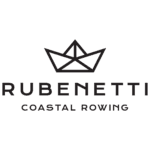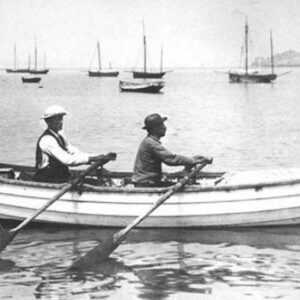Isa Scheunpflug mentioned a few exciting things in our interview a few days ago. Here are some examples and coastal rowing tips from her, a real experienced coastal rower (picture and video credit: Isa Scheunpflug)
Remember, she spoke of disastrous weather and water conditions: Do you have an idea, what conditions can be out there? Take a look at the pictures!


A disaster in this case would mean: You are not really able to row with a strong drive. Instead, you are only able to use your arms or body. This is to stay stable and control your boat and body stability. Missing a good drive increases the risk, that the waves will push you further towards the coast – where in this case rocks are waiting for the rower. The second disaster are the uncontrolled waves, coming from different angles. The rower needs to be extremely cautious and aware of his situation. Losing one of your oars or capsizing will be very likely. If you dont have your life jacket on: It is too late. Hopefully you are able to grab it after falling into the water. Chances are big, that after flipping you will lose contact to your boat.
Helpful hints: Look at some of these videos on Isa’s FB Page or our Coastal Rowing International FB page.
Another useful and interesting comment was Isa’s statement about handcuffs. “Grab the inner handles, put on ‘oar handcuffs’, if you have some. Place the seat either at front or back stop, depending on the rigger type.” See what she means by that: Try to understand the “Hand Cuffs”







